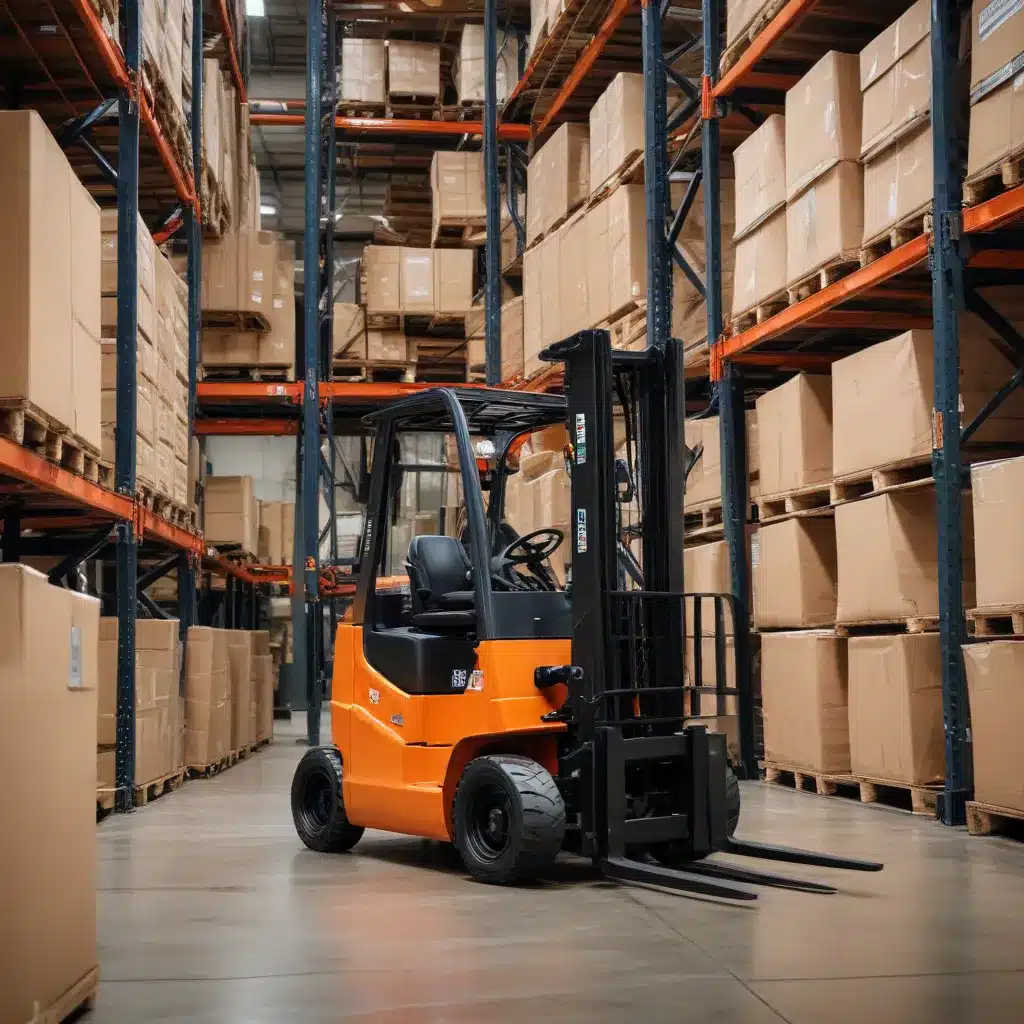
The Green Revolution in Logistics
In the dynamic landscape of logistics and supply chain management, a pivotal shift towards sustainability and efficiency is underway. Central to this transformation is the adoption of electric technology, particularly lithium battery-powered equipment, signaling a departure from traditional lead-acid batteries and internal combustion engines.
This transition isn’t merely technological; it’s a comprehensive reevaluation of material handling practices, prioritizing environmental responsibility alongside operational excellence. As industry leaders embrace this green revolution, the warehousing sector is at the forefront, leading the charge towards a more sustainable future.
The Rise of Zero-Emission Warehousing
The pursuit of sustainability has taken center stage in the world of logistics, and the concept of “Zero-Emission Warehousing” is gaining remarkable momentum. This paradigm shift represents a commitment to environmental stewardship, going beyond mere compliance to minimize greenhouse gas emissions, energy consumption, and the overall environmental impact associated with traditional warehouse operations.
Renewable Energy Integration
Zero-emission warehouses are harnessing the power of renewable energy sources, such as solar panels and wind turbines, to reduce their dependence on non-renewable energy. By integrating these sustainable solutions, warehouses not only meet their energy needs but also contribute surplus energy back to the grid, fostering a circular energy ecosystem.
Electric Vehicle Fleets
The logistics of the future are electric, and zero-emission warehouses are leading the charge. These facilities are embracing electric vehicles for intra-warehouse transportation and last-mile deliveries, from electric forklifts and pallet jacks to eco-friendly delivery vans. These advancements not only reduce emissions but also contribute to cost savings and operational efficiency.
Green Packaging Initiatives
Sustainable warehousing extends beyond energy and transportation; it also encompasses eco-conscious packaging practices. Zero-emission warehouses are prioritizing the use of biodegradable materials and implementing reusable packaging solutions, aligning with the broader circular economy concept and reducing waste throughout the supply chain.
Technological Innovations
Embracing technology is integral to achieving zero-emission goals. Advanced warehouse management systems (WMS) and Internet of Things (IoT) devices enable real-time monitoring, optimizing energy consumption, and identifying areas for further efficiency improvements. These cutting-edge solutions are transforming the way warehouses operate, driving sustainable practices and continuous improvement.
The Electric Forklift Advantage
At the heart of the zero-emission warehousing revolution are electric forklifts, which have emerged as game-changers in warehouse operations. These vehicles offer a host of benefits over their conventional counterparts, making them a crucial component of the sustainable logistics ecosystem.
Enhanced Performance
Electric forklifts boast improved performance, allowing for smoother and more precise movements. Their ability to navigate narrow aisles and tight spaces with ease enhances overall operational efficiency, streamlining workflows and reducing labor costs.
Quieter and Cleaner
The electric forklift’s silent operation creates a more comfortable and productive work environment, with significantly reduced noise levels. Additionally, the absence of fossil fuels eliminates exhaust emissions, contributing to a cleaner, healthier warehouse setting.
Lower Operating Costs
One of the primary advantages of electric forklifts is their significantly lower operating costs. These vehicles do not require the purchase and maintenance of fossil fuels, and they have fewer moving parts, resulting in reduced maintenance requirements. This translates to substantial long-term savings for warehousing operations.
Sustainability Integration
Electric forklifts seamlessly integrate with the broader sustainable practices of zero-emission warehousing. By eliminating emissions and reducing energy consumption, these vehicles align with the warehousing industry’s commitment to environmental responsibility and contribute to the overall green transformation.
Embracing the Transition
The transition to electric-powered material handling equipment in warehousing operations is not just a technological shift; it’s a strategic move that promises tangible advantages for businesses, the environment, and the future of logistics.
Collaboration and Stakeholder Engagement
Zero-emission warehousing is not a solitary endeavor; it involves collaboration with suppliers, transporters, and stakeholders across the supply chain. By fostering a sustainability mindset throughout the network, warehouses create a ripple effect, driving positive change industry-wide.
Practical Considerations
While the benefits of electric forklifts and sustainable warehousing practices are clear, the transition requires careful planning and execution. Factors such as infrastructure requirements, employee training, and financial considerations must be addressed to ensure a seamless and successful adoption of these transformative technologies.
The Future of Logistics
As the warehousing industry evolves, the embrace of electric technology and sustainable practices sets a new standard for operational excellence and environmental responsibility. This revolution paves the way for a more efficient, eco-friendly, and resilient logistics ecosystem, positioning the industry for long-term success in the decades to come.
Conclusion: Leading the Charge Towards a Sustainable Future
The transition to zero-emission warehousing and the adoption of electric forklifts are not just trends; they represent a transformative approach that aligns with the global call for sustainable practices. As leaders in the supply chain, embracing this green revolution is not just an option but a strategic imperative.
By integrating renewable energy, electric vehicles, and innovative technologies, warehouses can reduce their carbon footprint, enhance operational efficiency, and contribute to a more sustainable future. Through collaborative efforts and a commitment to environmental stewardship, the logistics industry can lead the charge towards a cleaner, more resilient, and prosperous supply chain ecosystem.
The future of warehousing is electric, and those who embrace this transformation will not only reap the rewards of operational excellence but also play a pivotal role in shaping a more sustainable world. Join us in this green revolution and be at the forefront of the logistics industry’s transformation.

